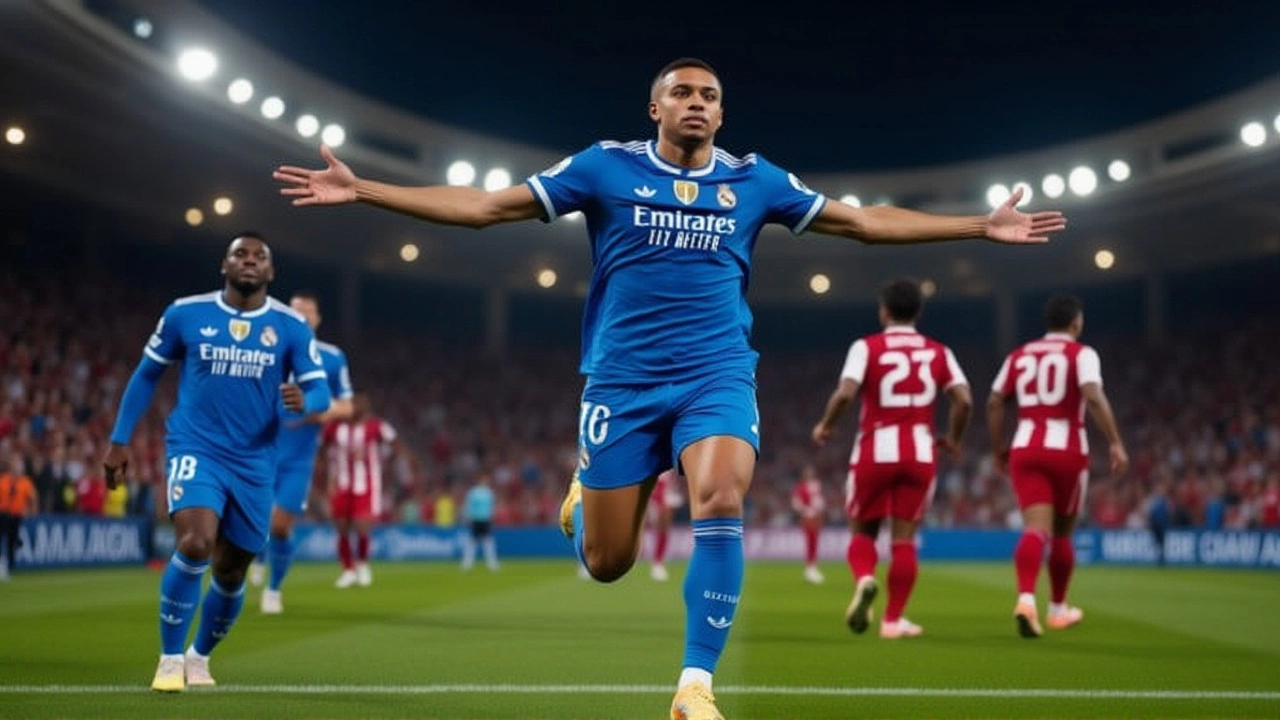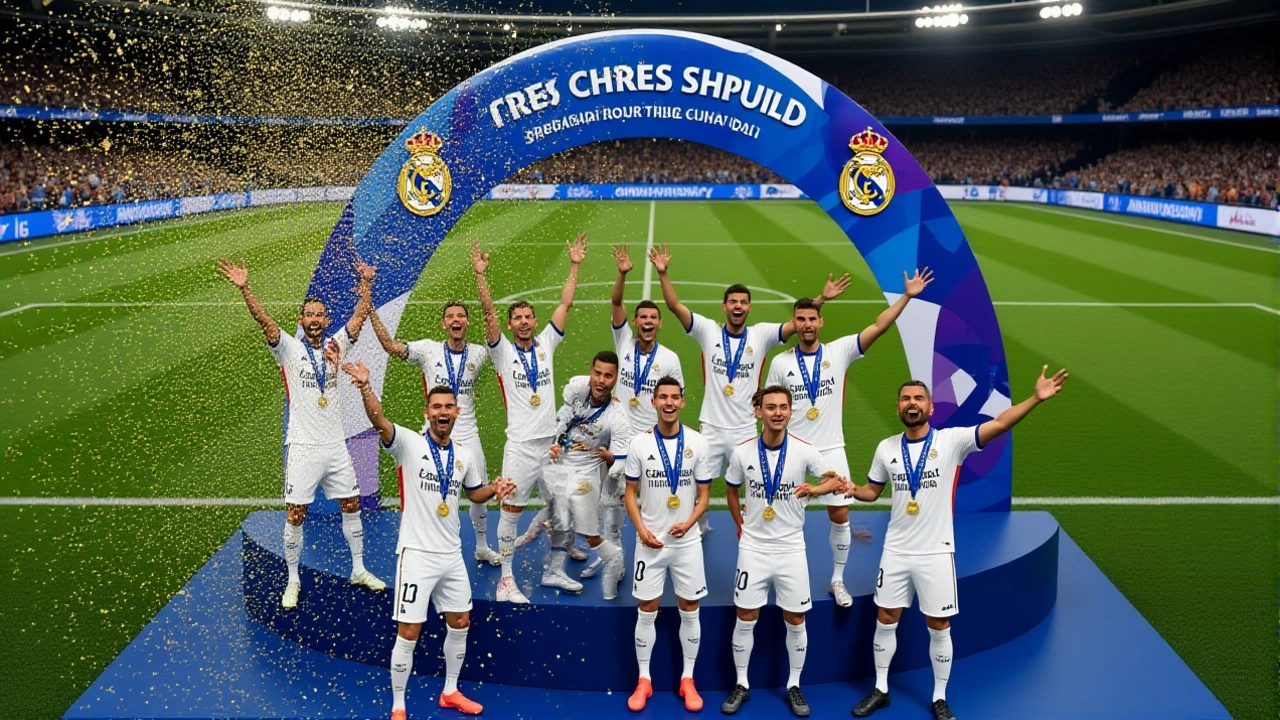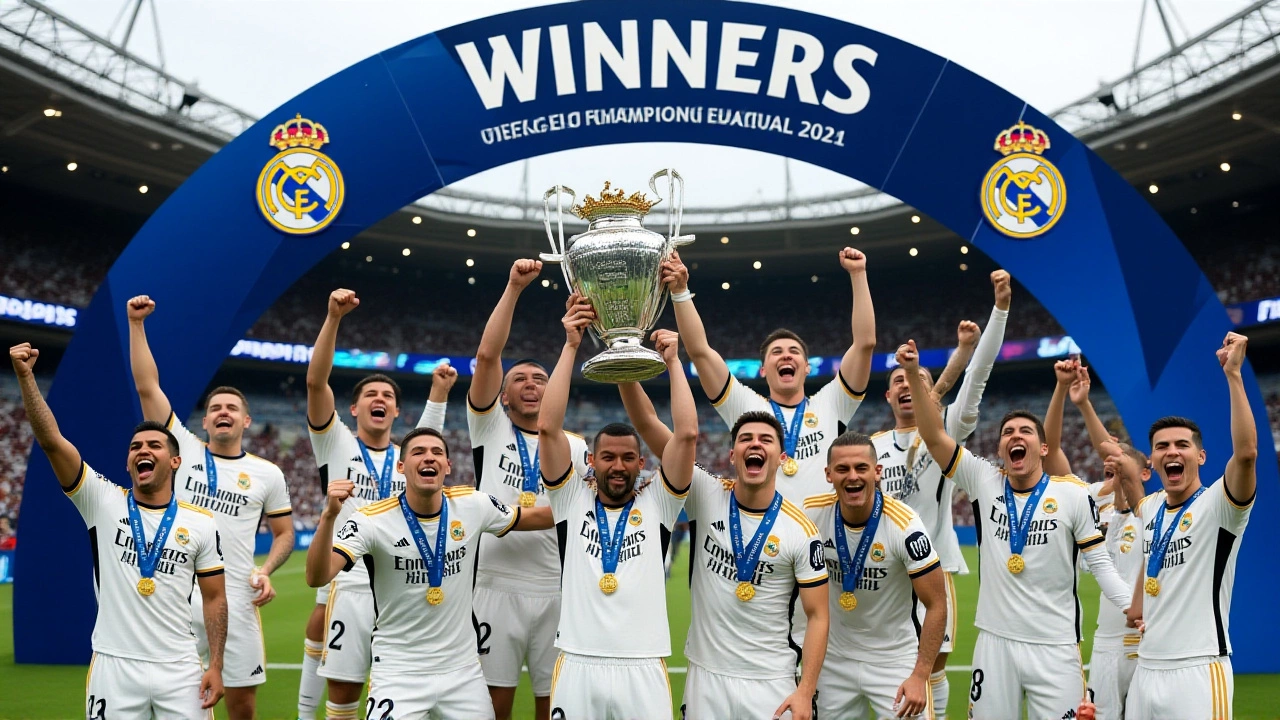Real Madrid didn’t just win the UEFA Champions League final — they rewrote history. On , at Wembley Stadium in London, Real Madrid defeated Borussia Dortmund 2-0 to claim their record-extending 15th European Cup, cementing their status as the most decorated club in continental football history. The win wasn’t pretty for long stretches — it was gritty, nerve-wracking, and utterly Real Madrid. And when Champions League glory is on the line, that’s exactly how they like it.
When the Moment Arrived, They Seized It
The first 70 minutes were a tense ballet of near-misses and defensive grit. Dortmund, hungry for their first European crown since 1997, pressed high and created chaos. Niclas Füllkrug rattled the post. Karim Adeyemi missed a one-on-one with Thibaut Courtois, the veteran goalkeeper who stood tall when it mattered most. Real Madrid, by contrast, looked sluggish, almost passive. But here’s the thing — they’ve spent decades mastering the art of waiting.
Then, in the 74th minute, it happened. Toni Kroos floated a corner into the box. Dani Carvajal, the 33-year-old right-back who’s been with the club since his teens, rose above the defense and powered a header past Gregor Kobel. The stadium gasped. Then erupted. Carvajal, tears in his eyes, sprinted toward the corner flag — the same spot where he’d celebrated his first Champions League win back in 2014.
Eight minutes later, Vinicius Junior ended any doubt. A swift counterattack, a slaloming run past two defenders, and a low, curling shot that kissed Kobel’s fingertips before nestling into the far net. Jude Bellingham provided the final pass — his third assist in this year’s knockout stage. It was the kind of goal that doesn’t just win trophies; it etches names into legend.
Ancelotti’s Masterpiece: Five Titles and a Legacy
On the sideline, Carlo Ancelotti did something no other coach in history has done: he lifted the Champions League trophy for the fifth time. His smile was quiet, almost tired. But the numbers don’t lie — five titles, more than any manager ever. After the final whistle, he told Movistar: "You need both sacrifice and quality to win this competition. But this win makes me very satisfied because we never give up and always fight until the end. So I’d rate us as 10 out of 10 this season. My players have been spectacular."
It wasn’t just the final. Real Madrid won LaLiga too — their first domestic and European double since 2017. And they did it with a squad that’s aging, but not broken. Kroos, Modrić, Carvajal, Nacho — these are the men who’ve been here for nearly a decade. Now, they’ve joined Paco Gento as the only players ever to win six European Cups. Gento did it between 1955 and 1966. These men did it across 2014 and 2024. The span of time? Almost 70 years. The consistency? Unmatched.

The Numbers That Define a Dynasty
Let’s pause and absorb the scale of this achievement. Real Madrid have now appeared in 18 Champions League finals — more than any other club. AC Milan? Seven titles. Liverpool? Six. Real Madrid? Fifteen. And they didn’t just win this final — they won it with a signature trait: late-game ruthlessness. This season, they scored 20 goals after the 75th minute when the score was tied or they were trailing. That’s not luck. That’s psychology. That’s culture.
Wembley has now hosted three Champions League finals — 2012, 2014, and now 2024. Each time, the winner was Spanish. Each time, Real Madrid was involved. The stadium may be in London, but for European football’s biggest night, it might as well be in Madrid.
What’s Next? The Hunt for No. 16
Ancelotti didn’t celebrate like a man who’d reached the summit. He celebrated like a man who’s already looking at the next mountain. "In this club, there is a continuous demand and we are never satisfied," he said. "After the Euros and Copa America, the players will come back with the same hunger and ambition as before."
That’s the Real Madrid way. No resting. No complacency. Even after winning everything, the pressure doesn’t ease — it intensifies. Vinicius, Bellingham, and Endrick are the future. But Carvajal, Modrić, and Kroos? They’re the soul. And they’re not done yet.

Why This Matters Beyond the Pitch
This isn’t just about football. It’s about legacy. In an era where money talks louder than loyalty, Real Madrid have built a dynasty on discipline, patience, and belief. While other clubs chase stars with billion-euro budgets, Real Madrid have nurtured talent, trusted veterans, and stuck to their identity. The club’s headquarters in Madrid, its global fanbase of over 450 million, its 15 trophies — these aren’t accidents. They’re the result of a philosophy that refuses to bend.
Dortmund, meanwhile, showed heart. They played with fire. But in the end, they met a force that’s been here before — and will be here again.
Frequently Asked Questions
Who are the only players to have won six European Cups/Champions Leagues?
Only two groups of players have achieved this. First, Paco Gento with Real Madrid between 1955 and 1966. Now, Dani Carvajal, Toni Kroos, Luka Modrić, and Nacho Fernández have joined him after winning their sixth title in 2024. No other player in history — not even Ronaldo, Messi, or Iniesta — has reached six. It’s a testament to longevity, loyalty, and elite consistency.
How does Real Madrid’s 15 titles compare to other clubs?
Real Madrid’s 15 Champions League titles dwarf every other club. AC Milan is second with seven, Liverpool third with six. Even England’s collective 14 titles across all clubs fall short of Real Madrid’s single-team tally. No other club has won more than three in the last 25 years. This isn’t just dominance — it’s a different level of achievement.
Why is Carlo Ancelotti considered the greatest Champions League coach ever?
Ancelotti is the only manager to win five Champions League titles — two with AC Milan and three with Real Madrid. He’s also the only coach to win the trophy with two different clubs in the modern era. His ability to manage star-studded squads, adapt tactics mid-tournament, and keep veterans motivated into their 30s sets him apart. No other coach has won it in three different decades.
What makes Real Madrid so good at scoring late goals?
They’ve trained for it. Since 2014, Real Madrid have scored 20 goals after the 75th minute when trailing or tied — more than any other club in Europe. It’s a mix of mental toughness, tactical discipline, and experience. Players like Modrić and Kroos control tempo, while Vinicius and Bellingham exploit fatigue. They don’t panic. They wait. And when the moment comes, they strike.
Will Real Madrid dominate the Champions League for years to come?
It’s unlikely they’ll win every year — but they’ll always be in the mix. Their youth system, financial stability, and global appeal give them a structural advantage. With Bellingham, Endrick, and Gavi emerging, and Ancelotti still at the helm, they’re building for a 16th title in 2025. The club doesn’t rebuild — it evolves. And evolution, in Madrid, means winning.
How did Wembley Stadium become a recurring stage for Real Madrid’s triumphs?
Wembley’s size, prestige, and neutral status make it a favored final venue. Real Madrid have now won there in 2014 (4-1 vs Atletico) and 2024 (2-0 vs Dortmund), and lost in 2011 (1-0 to Barcelona). But since 2010, every Champions League final held at Wembley has featured a Spanish club — and Real Madrid have won both times they’ve played there. For them, it’s become a lucky ground.



